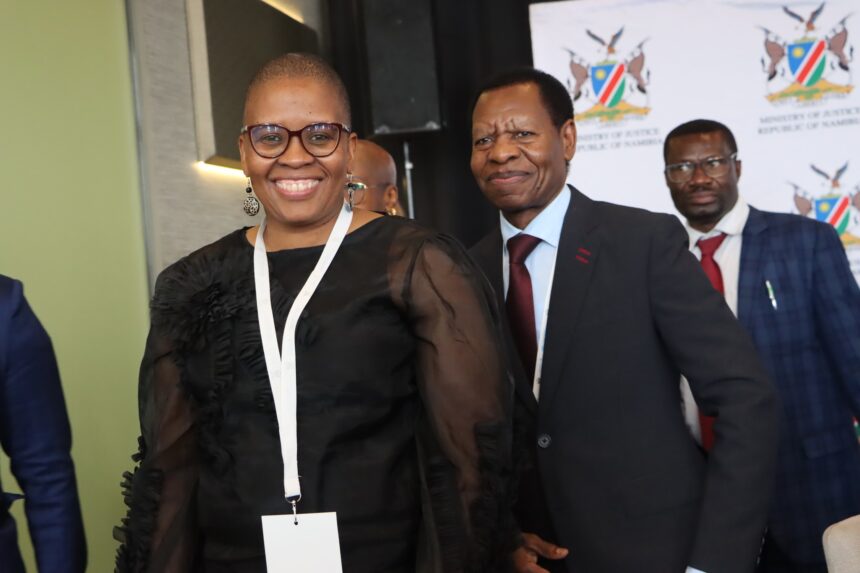Iuze Mukube
It is imperative for Namibia to carefully consider the urgent need to improve equal access to legal aid throughout the criminal justice system.
This call was made by justice minister Yvonne Dausab when she noted that access to legal aid is a basic human right.
She was addressing a gathering of delegates from across Southern Africa at a regional workshop in Windhoek recently.
It is aimed at enhancing equal access to legal aid in the criminal justice system.
Dausab highlighted that the provision of legal aid has been an element of the plan for the country’s governance and nation-building since the 70s when the nation’s blueprint was developed.
“The Constitution guarantees equality before the law, access to a fair trial, and the right to legal representation in criminal matters. The provision of legal assistance is one of the manifestations of the mandate of Articles 12 [fair trial rights] and 95 [State policies to improve the welfare of the people] of the Namibian Constitution,” she said.
She added, “These rights and principles provide a foundation for constructing a system of legal aid designed to provide funding for those who cannot afford the cost of litigation.”
Moreover, she said the provisions of legal aid epitomise the heart and caring nature of modern society and that the nation is likely to be judged by how well and widely it provides for those that regrettably come in conflict with the law.
Dausab described legal aid as the cornerstone of any fair and equitable justice system.
“It ensures that the promise of justice is not reserved for those that can afford it but is accessible to every person, regardless of their status,” she underlined.
Vulnerable and marginalised individuals often encounter systemic obstacles that limit their capacity to completely exercise their fundamental human rights because of their financial situation, as it hinders them from accessing legal assistance when needed.
Agreeing with her, Chief Justice Peter Shivute emphasised that legal aid is one of the most vital components of a fair and functional legal system.
“At its core, legal aid ensures that justice is not a privilege reserved for the wealthy but a right accessible to every individual, regardless of their financial circumstances.”
UNODC Regional Representative for Southern Africa, Jane Marie Ogola Ongolo, said access to legal aid is a fundamental human right that promotes social justice and economic development.
“It can prevent legal problems from escalating, address systemic inequalities, bolster people’s trust in fair justice, and help avoid prison overcrowding, lengthy pre-trial detention, and recidivism—which we know come at a high cost for the State and communities,” said Ongolo.
Hopolang Phororo, the United Nations (UN) Resident Coordinator, stated that to have a criminal justice system that is inclusive and democratic, legal aid must be considered a fundamental human right and a bridge for marginalised, disadvantaged, and discriminated groups that ensure fair trials and protection, as established in most Constitutions.
“At the international level, the member states are responsible for providing equal access to justice to their citizens, which is a key component of fair, humane, effective, inclusive, and efficient criminal justice to ensure no one is left behind – all groups in society must enjoy their rights.”
She announced the UN will collaborate again with Namibia on a new 2025-2029 UN Cooperation Framework that will be launched next month, and that has as its overarching goal to reduce inequality and empower youth.
The workshop commenced on Tuesday and ends today.
It was organised and hosted in collaboration with Namibia and the United Nations Office on Drugs and Crime (UNODC).


